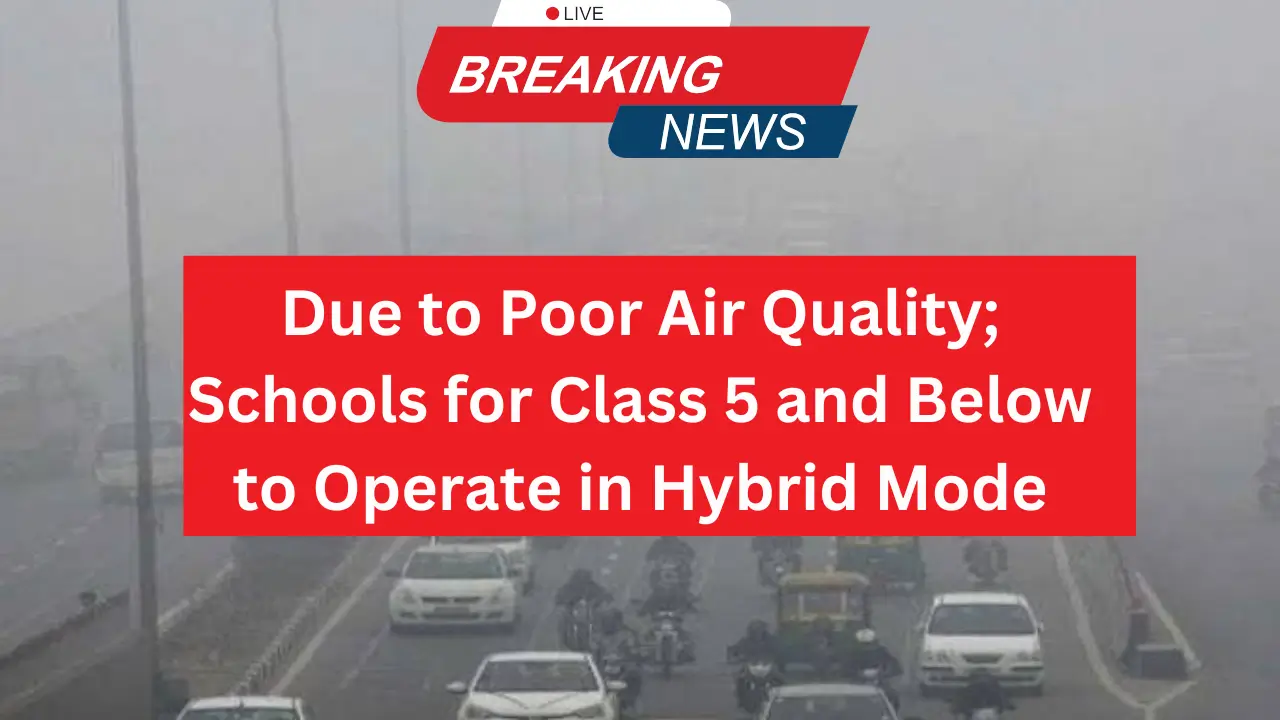
Newsletter Subscribe
Enter your email address below and subscribe to our newsletter

Enter your email address below and subscribe to our newsletter


The air quality in Delhi and the National Capital Region (NCR) has once again deteriorated, leading to the implementation of Stage-III of the Graded Response Action Plan (GRAP). As part of this initiative, schools for children up to Class 5 will now operate in a hybrid mode. This decision aims to protect young students from the harmful effects of poor air quality while ensuring that education continues. This article will provide an in-depth look at the situation, the measures being taken under GRAP-3, and the impact on schools and students.
The Graded Response Action Plan (GRAP) is a comprehensive framework designed to tackle air pollution in Delhi and NCR. It categorizes air quality levels into different stages, each with specific actions to mitigate pollution.
As of December 2024, Delhi’s AQI has reached alarming levels, prompting authorities to implement Stage-III measures immediately. The AQI was recorded at 367, indicating a severe pollution crisis.
| AQI Level | Category | Action Taken |
| 201-300 | Poor | Basic measures like public advisories |
| 301-400 | Very Poor | Restrictions on diesel generators |
| 401-450 | Severe | Ban on construction activities; hybrid school mode for younger students |
Due to the implementation of GRAP-3, schools for students up to Class 5 will now operate in a hybrid mode. This means that:
The implementation of GRAP-3 involves several key measures aimed at reducing pollution levels:
All non-essential construction and demolition activities are halted to reduce dust and particulate matter in the air.
Certain restrictions are imposed on vehicle movement:
Authorities are launching public awareness campaigns to educate citizens about pollution control measures and encourage them to reduce vehicular emissions.
Air quality will be monitored daily, with updates provided to the public regarding AQI levels and necessary precautions.
Poor air quality can have serious health implications for children, including:
For the general population, poor air quality can lead to:
The government has been taking various steps to improve air quality in Delhi-NCR:
To reduce traffic congestion and emissions, the odd-even vehicle scheme has been implemented during peak pollution periods.
Incentives are being offered for electric vehicles to encourage their use over traditional fuel-based vehicles.
Plantation drives are being organized across the city to increase green cover, which helps absorb pollutants.
Community Involvement
Citizens play a crucial role in combating air pollution:
Schools can also contribute by:
The implementation of GRAP-3 due to deteriorating air quality highlights the urgent need for action against pollution in Delhi-NCR. By shifting schools for Class 5 and below to a hybrid mode, authorities are prioritizing the health and safety of young students while ensuring their education continues uninterrupted.
As citizens, it is essential to remain informed about air quality issues and actively participate in initiatives aimed at reducing pollution levels. Together, through collective efforts, we can work towards a cleaner, healthier environment for future generations.
Disclaimer:This article provides an overview of the current situation regarding air quality in Delhi-NCR and its impact on schools based on available information regarding GRAP implementation. For detailed guidelines or specific inquiries about measures taken by authorities or changes in school operations, please consult directly with local educational institutions or government bodies before making any conclusions or decisions related to this topic.